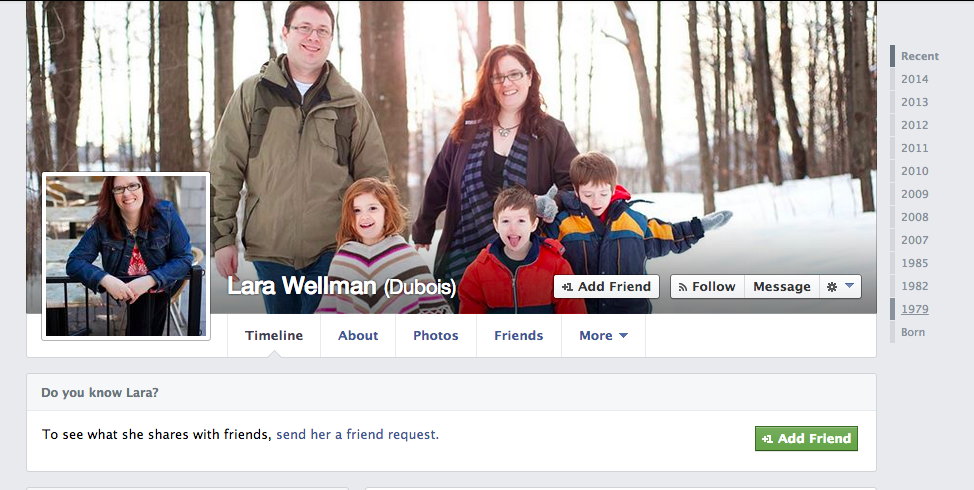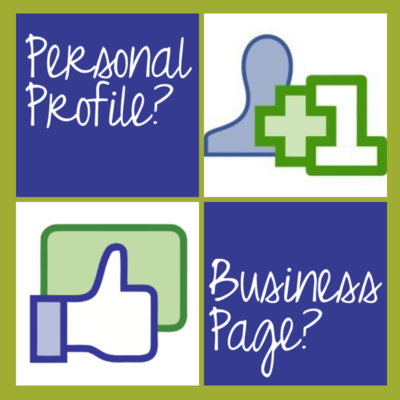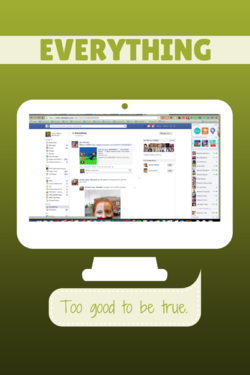 If you’ve noticed that your Facebook reach is down, you definitely aren’t alone. It’s frustrating – no doubt about it! Less people are seeing your content than in the past.
If you’ve noticed that your Facebook reach is down, you definitely aren’t alone. It’s frustrating – no doubt about it! Less people are seeing your content than in the past.
What this means for you as a page owner is that you may need to shift the way you’re doing things and how you think about Facebook as a tool. Because of this change we’ve been having this conversation with people a lot so today I’m going to share some reasons I think it kind of makes sense that you’re seeing less, and a few things you can do to try to improve the situation.
Why is this happening?
1. Facebook’s Algorithm
Facebook’s algorithm is designed to show people what they want to see. As much as I enjoy knowing what my favourite brands are up to, I definitely want the ratio of friend to brand content to fall heavily on the friend side. That means our Facebook pages are showing up less in personal feeds.
2. Volume
There are over 1.25 billion Facebook accounts sharing more than 10 billion messages daily. If everything that was shared showed up in your timeline chronologically (as it does on Google+ or Twitter) then you wouldn’t see any more from a brand than you are now. There is simply no way for people to see everything being shared on Facebook.
3. This is no different than with other media
You don’t hear every ad that runs on the radio or every comment/conversation by the DJs. You don’t see every ad that plays on TV. Why would you expect to see everything one brand or person posts on Facebook?
TV and radio are a great analogy for a lot of what’s going on with Facebook, in my opinion.
When TV was a newer technology, brands could buy an ad on one of the big three networks and because the choice of channels was so limited, the chance of their audience seeing that ad was fairly high. This is very much like the early days of Facebook when people were only following a few brand pages and didn’t have hundreds of Facebook friends.
When people choose to watch TV now, they have hundreds of channels to choose from, or they can choose to fast forward through all the commercials or go straight to streaming Netflix and avoid commercials altogether. The chances of a brand’s commercial being seen by the public simply because it’s been put on TV has significantly decreased because of all the content available out there. The same applies to Facebook.
While many people like to talk about Facebook being a bait and switch situation with a free service that worked well now being one that has little reach, the landscape of Facebook is simply no longer what it was a couple of years ago. As the pickup within a medium increases, the reach is bound to decrease.
4. Revenue
People talk about how Facebook just wants your money a lot. I agree. They do.
I also think that makes sense. You can reach your audience for free on Facebook with a certain level of effort (like getting media attention using public relations) or you can pay for advertising (just like people do on TV, radio and newspapers) and get in front of more eyeballs. Facebook is trying to make money and their business model is one that includes advertising. I don’t think it’s an unreasonable thing for them to want the brands who are reaching their audiences on their network to pay for a some of it.
I don’t want to just spend my time justifying why your reach has decreased though, I want to offer some ideas on things you can do to bump it back up again.
What can you do?
Post regularly
Are you posting at least 1-2 times a day on your page? You should be posting at least that many times, if not more.
The more regularly and consistently you post good, valuable content, the more likely your audience is to see and interact with your content. That means they’ll be seeing your content in their feed more often in the future.
Analyze your content
Check your insights regularly. At least once a week, go and see what people are reacting to and take that into account when creating more content.
Is your audience clicking through on your links? Are people liking, commenting on or sharing the pictures you post? There is a ton of information in the insights that will help you make your content exactly what your audience is looking for.
What time is your audience online?
In the Facebook Insights section you can see what time your audience is online. Make sure that you’re sharing content throughout all of those times and not just the same times over and over again. Then check to see if certain times are working better. (Building your Facebook presence requires patience and a willingness to test and tweak.)
There are certain times of day that are really popular. Your audience may be online but it’s harder to reach them because so much more content is being pushed out at that time (ads are more expensive during drive time radio for a reason). You may be better off posting at a time that is slightly less popular (9pm maybe?) and getting through to more people. Test it out and see what works!
Enlist your brand champions
You have a loyal following. There is nothing wrong with asking certain people to be more engaged on your page because it helps get the reach up. Ask them to turn notifications on and let them know you appreciate the support they are giving your page. It’s also nice to be willing to do that for a few other pages.
I have notifications turned on for about 5 business pages and I try to like, comment and share content on those pages as much as possible, because I know it’s helpful and valuable to a business that I believe in.
Pay for advertising
I mentioned this a bit earlier when I talked about Facebook wanting revenue. I think it’s reasonable to spend a bit of money on Facebook advertising. In fact, I think it’s a really good idea.
I’ve paid for advertising in print. Facebook advertising is dirt cheap in comparison, but you can target so specifically it’s amazing - done right, Facebook ads can deliver far more value than print ads. Don’t think that because you’ve heard boosting posts is a waste of your money (it definitely can be) or because people are complaining about Facebook advertising that it isn’t something worth doing. I’ll admit it takes time to learn how to do it really well, and you may want to enlist someone to help you do that that, but Facebook advertising DOES work and is something every business should consider and not just scoff at.
Reset your expectations
Things have changed. We may have gotten up to 50%+ reach on some posts in the past and we aren’t getting that any more. But if you think about the fact that people ARE seeing your content, that you’re providing value to the people who really want it, and you’re able to grow that audience at incredibly low cost, instead of just looking at the decrease in numbers you’ll see that spending your time on Facebook is still worthwhile.
Set some very realistic goals and expectations and see if you can meet them. Work to improve your engagement and reach from where you’re at now instead of looking into the past. Be consistent and provide quality content and you’re off to a great start. Just don’t forget to TELL people to come to your Facebook page and like you. And WHY. Why is it worth their time to offer you real estate in their packed Newsfeed?
So there you have it - my thoughts on the Facebook reach situation. To summarize it all quickly - yes, it’s happening. I don’t think it’s surprising or awful, but I do agree it’s frustrating and disappointing. We all just need to do our best by creating great content and putting our audiences first to make the time we spend on Facebook as worthwhile as possible.
Do you think Facebook still has value or has the algorithm destroyed its value for businesses? Leave a comment and let us know!











